Teen Survivors Reading Resources
Teen survivors often feel left out of the discussion where sexual abuse issues are concerned. You might notice a gap in representation within the available literature. Many books may not feature stories of guys your age or adequately address the unique challenges specific to your adolescent experience. These challenges could include navigating relationships with parents, coping with school-related stress, interacting with friends, exploring the realms of dating, and understanding the impact of abuse on your sexual development and confidence. It's not that these issues are considered unimportant; rather, the field of literature is still relatively new, and until recently, male survivors who shared their stories were primarily adults. In the last two decades, there has been a significant shift, although there is still work to be done in addressing the specific needs of teen survivors.
Below are the categories where we've organized the most relevant books for you. Some of these books are tailored specifically for teen guys, others encompass both genders, and a few have been authored by teen survivors themselves.
- One Book for All: a universally helpful guide for abused teens of both sexes.
- Boys' Recovery Journey: excellent books tailored for boys, including a new version for older boys.
- Brief but Impactful Booklets: a series created specifically for teenage survivors.
- Teen Perspectives: a booklet written by a teenager for a relatable perspective.
- Memoirs by Teenagers: showcasing firsthand experiences of abuse and recovery written by teens.
- All-Inclusive Resources: including useful books for survivors of both sexes, ensuring a comprehensive approach.
- Religious Resources: exploring the intersection of faith and recovery for teen survivors.
- Existential Exploration: addressing profound questions and helping teens own their feelings.
- Anthologies of Teen Voices: featuring diverse voices creating a collective wisdom resource.
When we use the term "boys" on this site, it is not intended to patronize or condescend. There is no suggestion of weakness or immaturity; quite the opposite is true, and that's the core message. The purpose is to emphasize your entitlement to love, protection, guidance, and the freedom to navigate your journey to adulthood at a pace that suits you – all without being exploited or betrayed. These are not mere needs; they are your inherent rights. You don't have to earn them, and nothing you say or do, nor the feelings or desires of the adults you encounter, can ever revoke them. The references to "boys" here invite you to reflect on the significance of having such rights simply because you are a "boy." What does it mean to possess these rights, and how can they empower and support you?
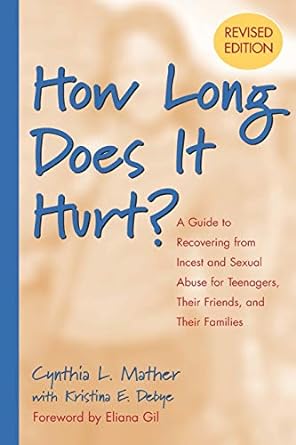
How Long Does It Hurt?: a Guide to Recovering from Incest and Sexual Abuse for Teenagers, Their Friends, and Their Families
This book provides encouraging and accurate information on sexual abuse, the feelings it can impose, how to disclose to adults, what will happen if the case goes to court, and questions that can arise as a survivor begins to heal. Boys I have worked with praise the book’s layout, its many excellent drawings and dialogue boxes stressing key points, its comprehensive coverage of relevant issues, and the way the author speaks clearly and frankly, but with empathy. As one boy (age 13) told me: “She makes me believe I’m going to be okay.” The book ends with a bibliography to 2000 and a good index.
Link to Book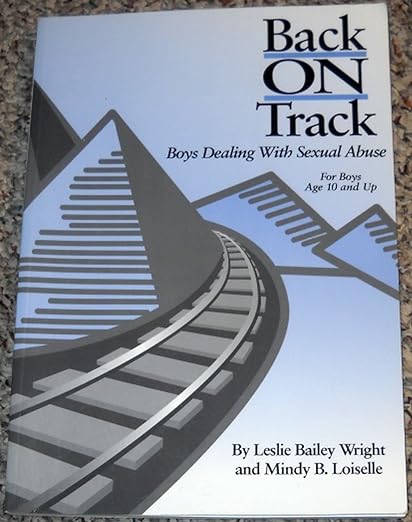
Back on Track: Boys Dealing with Sexual Abuse – For Boys Age 10 and Up
In this book the authors speak to younger boys about facing the abuse, telling safe adults, what sexual abuse is and how it makes a boy feel, old and new ways of coping, thoughts about sexuality and worries about puberty and the body, what happens in therapy, dealing with the family, social services, the courts, school, and planning for the future. Each chapter ends with reminders about its main points, and the book often becomes a workbook, with opportunities for the reader to raise questions, write down what he thinks, draw, and express feelings. It stresses that no boy deserves to be hurt, that abuse is never his fault, and that while telling isn’t easy there are adults who will listen and help.
Link to Book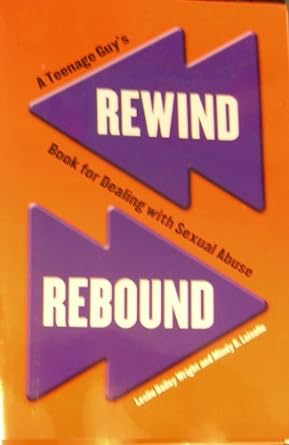
Rewind, Rebound: a Teenage Guy’s Book for Dealing with Sexual Abuse
This version places particular stress on the intense emotional changes that teen guys experience and includes separate chapters on personal resilience and sexuality, while retaining many of the useful question and answer forms and the strategy of concluding each chapter with a list of important points under the heading “So What’s Important Here?”
Link to Book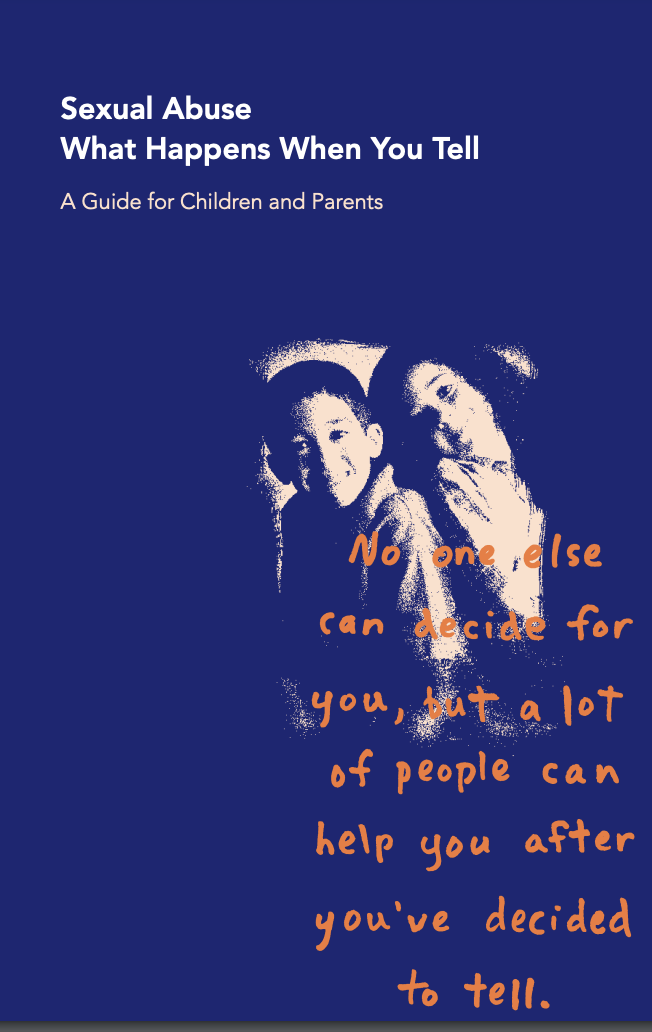
Sexual Abuse, What Happens When You Tell: a Guide for Children and Parents
Booklet from the Canadian National Clearinghouse on Family Violence.
Link to Book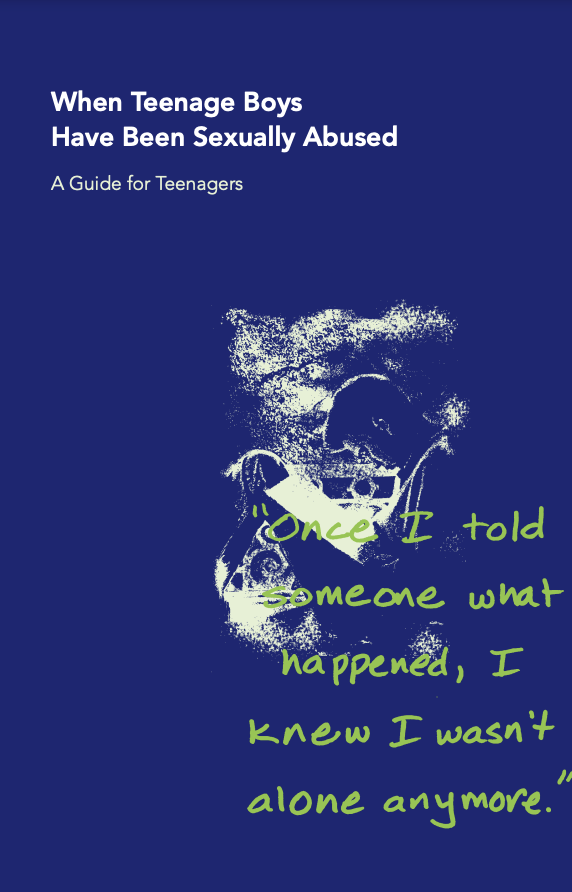
When Teenage Boys Have Been Sexually Abused: a Guide for Teenagers
Booklet from the Canadian National Clearinghouse on Family Violence.
Link to Book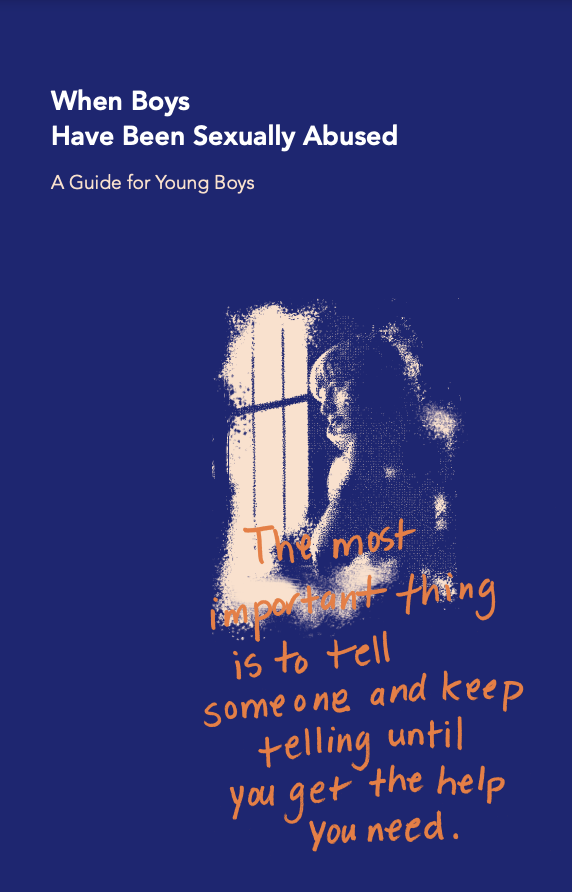
When Boys Have Been Sexually Abused: a Guide for Young Boys
Booklet from the Canadian National Clearinghouse on Family Violence.
Link to Book
For Guys My Age: a Book about Sexual Abuse for Young Men
Sexually abused for years, Matt turned to alcohol, drugs, and crime to cope with his feelings and twice attempted suicide. In juvenile detention, after two earlier unsuccessful placements, he finally received effective help. He came to understand that the abuse was not his fault, that sex could be based on love and respect, that there were adults who genuinely cared and could help him, and that talking about his feelings was the key to his recovery. He wrote an essay about all this in therapy and at age sixteen published it for the other boys at the Maxey Training School, many of whom had also been sexually abused. Ann Schulte, his therapist, contributes a foreword, an appendix on points Matt has made, and a brief bibliography to 1990. Nearly 30 years after its publication, this booklet is still being used in outreach to youth. Copies are available from the Library of the Hawthorn Center at 18471 Haggerty Road, Northville, MI 48167.
Link to Book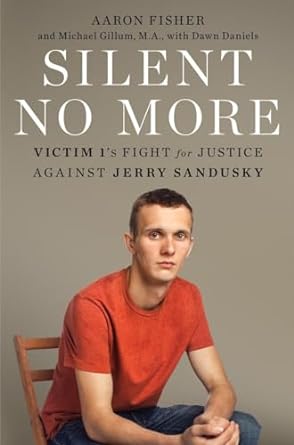
Silent No More: Victim 1’s Fight for Justice against Jerry Sandusky
Aaron was only eleven when he enrolled in a summer camp at the Second Mile, a children’s charity run by Jerry Sandusky, the famous assistant to Penn State football coach Joe Paterno. In a classic example of grooming, Sandusky won the boy’s trust with gifts, time, and affection, and was soon molesting him. The abuse continued for several years, but at the age of fifteen Aaron disclosed what was being done to him, setting off the greatest scandal in sports history. In this account, written when Aaron was eighteen, he, his mother, and his lawyer join forces to tell the story each from their own perspective. I recommend this book in the “Resources” section for parents, and I want you guys to know about it too. It’s a great example of the results a teenager can achieve when he has solid family and professional support.
Link to Book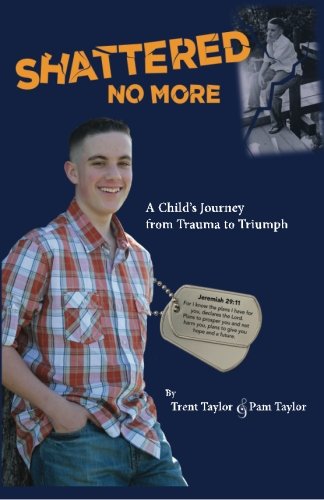
Shattered No More: a Child’s Journey from Trauma to Triumph
Trent and his three siblings spent their earliest years in profound neglect and were sexually abused by an uncle. When Trent was four years old the state of North Carolina placed the children in the foster care system, but the abuse continued as Trent’s older brother began to molest the younger kids. But for Trent, moving from home to home was even more difficult, since it made him feel constantly at risk, invisible, undeserving of love, and not worth keeping. His life took a dramatic change, however, when he was eight. He and his younger brother were fostered and a year later adopted by a couple who provided them with a loving home and helped them get their lives back on track. Assisted by his mother, Trent wrote and published his story when he was fourteen; three years later, he is active in school and in his mother’s charity, Mercy for America’s Children, which advocates for children awaiting adoption in the foster care system. Though he was lagging far behind in school at the time of his adoption, he is now ahead of his class and about to enter college. This is another book demonstrating what becomes possible when a teenager has loving effective support from the adults in his life.
Link to Book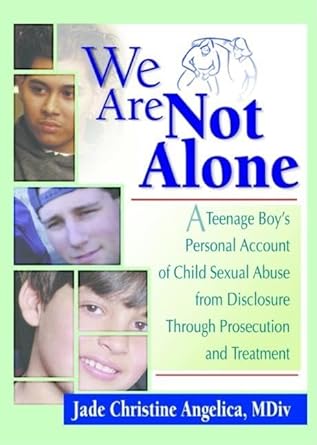
We Are Not Alone: a Teenage Boy’s Personal Account of Child Sexual Abuse from Disclosure through Prosecution and Treatment
This is a manual describing how the legal system handles a teenager’s sexual abuse case, using the story of “Joe,” a sixteen-year-old who tells a safe teacher at school that he was abused when he was little. This is a hypothetical case combining the experiences of many boys, using the Massachusetts Superior Court system to illustrate the steps that will be taken to protect and support you. At the end there is a glossary of legal terms.
Link to Book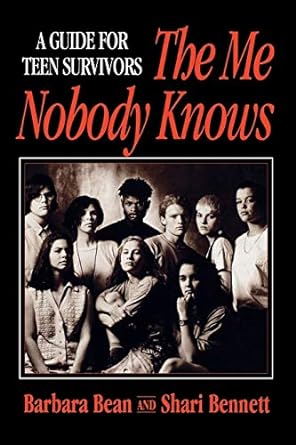
The Me Nobody Knows: a Guide for Teen Survivors
The authors are social workers and therapists experienced with teen survivors, and in their book they introduce you to questions that arise when you think about the abuse and how you can recover. They offer many ideas of their own, but they also invite you to participate by working on exercises throughout the book. You may at first hesitate to get into such work, and that’s okay. But give it a chance if you can; you may come up with great ideas on your own. There is also a section for parents, printed in such a way that you can cut it out and give it to any adult you think can help you. The book closes with a list of resources and hotlines, bibliographies, and a good index.
Link to Book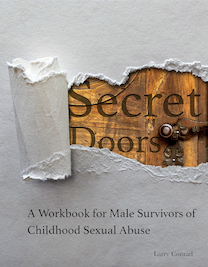
Secret Doors: a Workbook for Male Survivors of Childhood Sexual Abuse
This workbook, written by the founding director of the Foundation, offers a new approach to recovery from sexual abuse by presenting the problem from the survivor’s perspective and addressing a knot of issues central to healing. The book consists primarily of statements by male survivors on five major themes: the young me, abusers, abuse, after the abuse, and thriving, with framing materials by the author and suggestions for how a completed workbook can be used to pursue further recovery work. The interest of Secret Doors to young male survivors lies in the major role that teens played as contributors of material. Fully a third of the survivor statements came from guys like you – boys of many different national, ethnic, spiritual, and social backgrounds.
Link to Book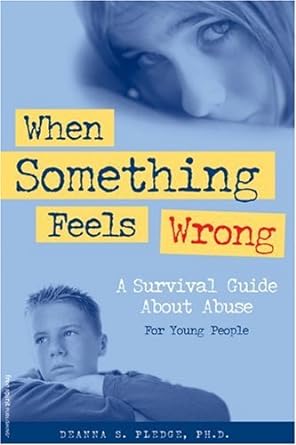
When Something Feels Wrong: a Survival Guide about Abuse for Young People
A manual by a psychologist and youth counselor for boys and girls who are victims of child abuse in general. The text is divided into three parts discussing abuse itself, taking action, and the healing journey; dialogue boxes, lists of bullet points, and highlighted areas are used throughout to stress the main themes. Each chapter ends with a “Let It Out” section with ideas for useful activities and topics to think or write about. The author addresses boys as well as girls and cites the experiences and feelings of teens of both genders. Each part has its own lists of resource organizations, hotlines, and websites, and the book closes with a good index.
Link to Book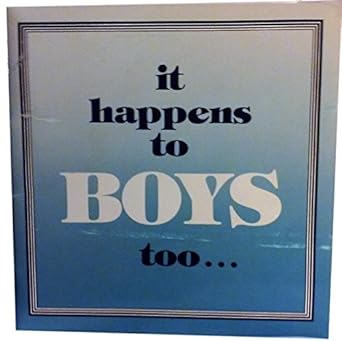
It Happens to Boys Too
This clearly written and well-illustrated booklet is for younger teen survivors, but if you’re an older teen there is still much here that will help you. It’s something you can read through quickly and gain a lot of important and reassuring information. It discusses the myths that boys often believe about sexual abuse, stresses that abuse can never be the boy’s fault, reviews ways in which boys can be manipulated by abusers, offers some ideas on why adults abuse kids, and includes the stories of four guys who talk about their abuse experience. The booklet closes with advice for parents, so if you have this booklet you could consider showing it to a safe adult as a way of asking for help.
Link to Book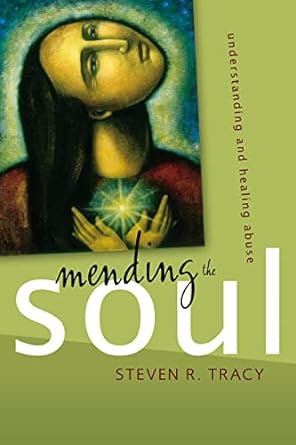
Mending the Soul, Student Edition: Understanding and Healing Abuse
This book by a pastor/counselor and his wife is based on an earlier book and companion workbook written for adults, materials from which have been recast and augmented for a teen readership. It covers recovery from all forms of abuse, physical and emotional as well as sexual, from a Christian perspective. Topics include why you need to talk about the abuse, feelings of abandonment, imperfect people and families, friendship and dating, behaviors and feelings you may encounter as a result of abuse, healing, and forgiveness. The authors frequently cite the Bible, but there are also references to popular music and the book tells the stories of teens facing difficulties that will ring true for you. There is an appendix on relevant Bible passages, and the book closes with notes to the text (the cited reading extends to 2010).
Link to Book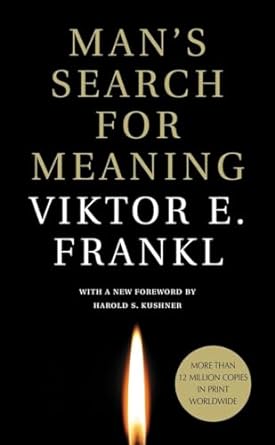
Man’s Search for Meaning
A Jewish Austrian psychiatrist from Austria who lost most of his family in the Holocaust, Frankl addresses the question of how one can find meaning and purpose in life in the face of unbearable suffering. His answer springs from his experiences in several Nazi concentration camps and revolves around his conviction that as love and hope are never beyond reach, even in the worst circumstances, it is always possible to find meaning in life, and hence to achieve fulfillment. Happiness isn’t something we can pursue; it’s the outcome of dedication to a greater cause. The full text of Frankl’s book is listed in the reading list for adults; this version is addressed to a teen audience. That doesn’t mean it’s “dumbed down:” many adults find the original text very dense and difficult.
Link to Book
Kids Helping Kids Break the Silence of Sexual Abuse
The author is a survivor/child advocate who collected these survivor stories by ten girls and five boys through her contacts with abused teens. Arguing that teens have much to learn from the experiences of others their own age, the author uses the stories to illustrate major safety and recovery themes: who abusers are, what comprises sexual abuse, the Internet, self-care, what to do about inappropriate advances, dealing with a friend’s disclosure, talking about problems, the innocence of victims, threats and promises by abusers, “you’re not alone,” feelings, disclosure, and prospects for recovery. The book includes introductions for both parents and teens, and a list of resources (books to 2001, websites, organizations) for further information and support.
Link to Book